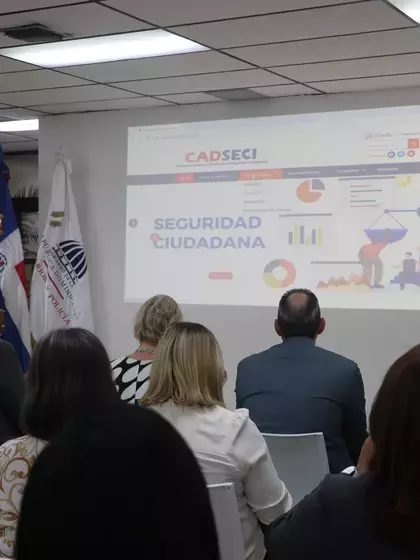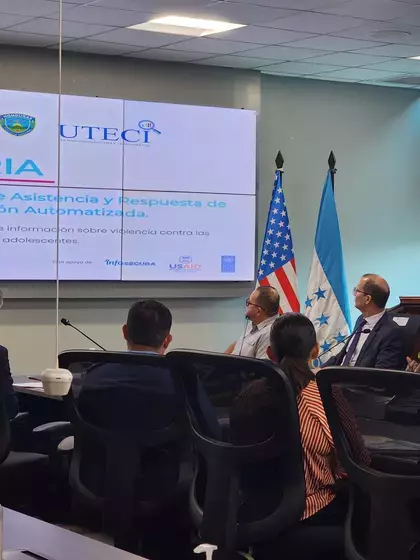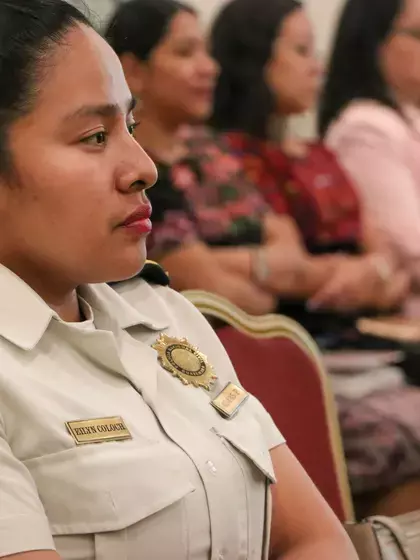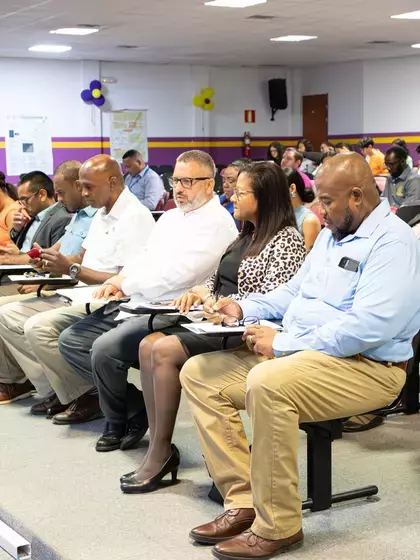8 March commemorates the fundamental role of women in a more sustainable, inclusive and just world

On 8 March 1908, a group of women textile workers in New York went on strike to demand better working conditions and the right to vote. This commemorates a historic date in the struggle for the rights of women, their equality and equity in every domain of society, and is a reminder of their persistence and courage in pursuit of a more just world.
This year the theme, Women Leading Change, emphasizes the significance of women's active participation in decision making at all levels, and in the creation of more inclusive and equitable societies. "Gender equality is essential for global progress and sustainable peace. We have to overcome the barriers limiting women's full and effective participation in all aspects of life," states UN Secretary General Antonio Guterres.
One of the main obstacles to gender equality by 2030 is the alarming lack of financing for measures intended to achieve gender equality, with an overwhelming annual deficit of $360,000.
According to recent estimates, 75 per cent of countries will continue public spending cuts in 2025 due to conflicts and rising prices of fuel and food. Austerity has negative repercussions in women's lives, because it reduces public expenditure in essential public services, care policies and social protection. "We need to invest in programmes to end violence against women and promote women's inclusion and leadership in the economy, digital technology, peacebuilding and climate action," says Guterres.
In this sense, InfoSegura recently published a report called Public investment approach for the prevention, care and reparations of violence against women and girls in Guatemala, El Salvador and Honduras, where it says that, despite efforts in recent decades, the part in general budgets that the State assigns to programmes for women is on average 1.5 per cent in El Salvador (2022), 4.7 per cent in Honduras (2020) and 7.8 per cent in Guatemala (2021).
Notable among its main conclusions is the need for public policies to include measures for the prevention, care, sanction and reparations and to assign budgets that are well defined and stable over time; also, the importance of adopting a multidimensional approach, taking into account economic, social, cultural and justice aspects in the fight against Gender-Based Violence.
Since 2020, the COVID-19 pandemic, geopolitical conflicts, climate disasters and economic shocks have pushed 75 million more people into extreme poverty. This could leave over 342 million women and girls living below the poverty line in 2030. It is crucial to prevent this by acting immediately.
The current economic system exacerbates poverty, inequality and environmental degradation. It has a disproportionate effect on women, even more so on women who face multiple forms of discrimination. Movements that advocate for alternative models propose moving toward a care society that preserves the environment and the sustainability of life, recognizing the knowledge indigenous women possess, as well as their front-line role in an economy that does not accelerate climate change, nor is predatory of the ecosystems and allows for development to be sustainable. "This all depends on having financing for sustainable development, so that countries have funds to invest in women and girls," the UN Secretary General explains.
On International Women's Day, it is essential to reflect on what has been achieved and the challenges ahead. "Gender equality is not only a fundamental human right, it is also a key driver for a peaceful, prosperous and sustainable world," emphasizes the UN Secretary General.
"We must work together to eliminate gender discrimination and create a future where all people, regardless of gender, enjoy equal opportunities and rights," Guterres states.
With this mandate, the United Nations Development Programme (UNDP) in partnership with the United States Agency for International Development (USAID) through the InfoSegura Project, strengthens the statistics and data on violence against women and girls in different countries where the project is underway. It has also worked to integrate different sectors and institutions to gain a broader level of coordination, advocacy and perspective, with the objective of incorporating gender effectively into citizen security policies.
In order to incorporate gender effectively in citizen security policies, the Project creates prioritization indexes, conducts research, publishes regular analysis on violence against women and girls, supports victimization surveys and gender-sensitive indicators, and also implements campaigns for the prevention of violence against women and girls.
REGIONAL CAMPAIGNS:
- CONOSE Network: Regional awareness campaign against gender-based violence to raise awareness of the different forms of violence in households.
- 16 days of activism against gender-based violence. International campaign from 25 November to 10 December for the elimination of violence against women.
- SARA Chatbot: Provides information and advice to prevent violence against women, girls and adolescents, using artificial intelligence and machine learning. Offers a safe, anonymous and confidential contact, as well as legal advice and emergency phone numbers. The objective is to contribute to safer and more inclusive societies.
LOCAL CAMPAIGNS:
Costa Rica:
- "Those no longer here:" This campaign focuses on raising awareness of femicide and intrafamily violence. It aims to shed light on the women victims of femicide and raise awareness of the issue in society.
- This is where I get off. A focus on preventing violence among young people. Targets young people, conveying a convincing message for a shift in direction.
- More than a number. The objective is to raise awareness of the multiple forms of violence that women experience throughout their lives.
El Salvador:
- 198 Call Center: Publicizes a toll-free number for women victims of violence, encouraging those who face situations of gender-based violence to use it.
- Research on public transportation: Presents the study on mass transit in the San Salvador Metropolitan Area, to understand different user experiences and needs, particularly women.
Honduras:
- Violence Prevention Campaign: Focus on raising awareness of the new masculinities to unlearn erroneous concepts about gender roles that lead to violence. Includes online forums, theatre, contests and social media influencer support.
- National Specialized Survey on Violence Against Women and Girls: Approximately eight in 10 reports of sexual crimes involved women in 2022. Some 66 per cent (1,806 victims) were under the age of 18, while most (40%) of the reports came from women between the ages of 13 to 17 (1,093 victims). Nine in 10 women do not report nor do they seek help in situations of violence they experience throughout their lifetime.
Guatemala:
- #Nothing justifies violence against women: Three-phase campaign that raises the call to become informed about gender-based violence against women. The aim is to raise awareness of the different forms of violence in society.
- Update of the Territorial Prioritization Index on Violence Against Women and Girls (IPTVCM): Innovative tool to help target public policies in the territory to prevent violence against women and girls.
Dominican Republic:
- Study on Violence against Women and Girls in the Community and at Work: Two studies to understand violence against women in different contexts carried out by the Ministry of the Interior and Police, Ministry of Women's Affairs, and the National Statistics Office in collaboration with UNDP and USAID.
Day of reflection on the path covered so far. Demanding more just and inclusive societies. Committing ourselves to continue working for a world where gender equality is a reality. Demanding countries provide the financing necessary to achieve it.





